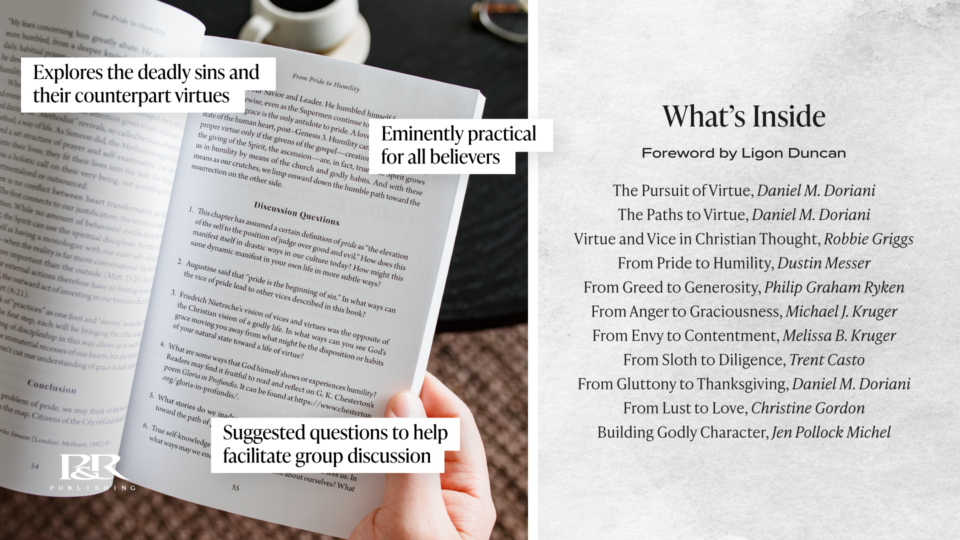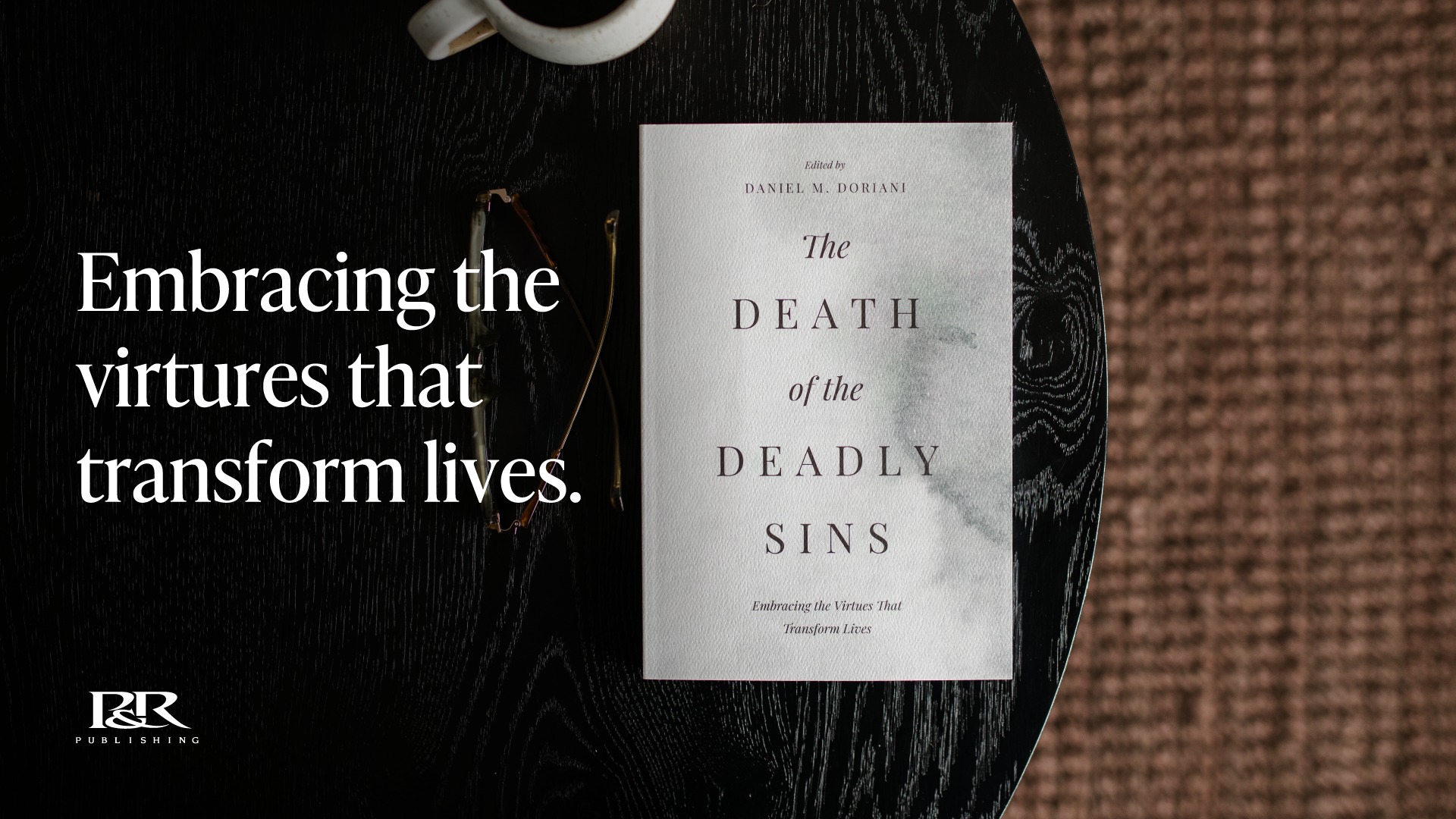This week, the blog is sponsored by P &R Publishing.
Virtue has fallen on hard times. The West has apparently abandoned the idea that leaders ought to be men and women of character. In the past, leaders labored to control their appetites and impulses. Today, many extol men and women who have the resources and boldness to indulge every desire and unleash every impulse.
One day in 2023, the New York Times published two articles that invited readers to abandon the quest to be good. The first article, “I Don’t Need to Be a ‘Good Person,’” urged readers to “listen to your worst instincts and darkest desires.” In the second, “The Virtues of Being Bad,” sixteen writers confessed a range of offenses. At first, it was trivia like eating junk food. More ominously, they lie to strangers, practice shoplifting; and sleep with friends at random.
Judging by widely read advice columns, most Americans live by a code that has just a few rules: Don’t break promises you make to your friends, don’t cheat on your partner (unless you agree on polyamory), and don’t exploit power differentials. People generally do what it takes to be happy—and to help family and friends find happiness, too. So they follow their heart, they cut off people who aren’t “life-giving,” and they seek authenticity.

Christians have doubts about virtue, too. Some notice that the Bible speaks of God’s law hundreds of times and barely mentions virtue. The center of Christian morals is “submission to demands. . . . God calls and man obeys.” If that is true, then who needs virtue? All we need is a disposition to obey the law.
God’s character is the essence of virtue. The heart of virtue is to know the Lord and to become like him, as a child resembles her father. That is the goal, privilege, and destiny of the redeemed.
Martin Luther also criticized virtue, saying that the journey of the redeemed is not from vice to virtue, but “from virtue to the grace of Christ.” Luther stated that the great enemy of the faith is not the “godless sinner” but the “righteous man” who dwells on his progress and swells with pride.
Indeed, there is a kind of virtue that leads away from Jesus. The Pharisees suffered from it, as we see in Matthew 15:1–20. Clearly, it is time to define true virtue and to make a case for it.
God’s character is the essence of virtue. The heart of virtue is to know the Lord and to become like him, as a child resembles her father. That is the goal, privilege, and destiny of the redeemed. Romans 8:29 informs us that those whom God “foreknew he also predestined to be conformed to the image of his Son.” Believers should gradually resemble Jesus more and more.
To be like Jesus is both our destiny and God’s command. Paul told the Ephesians that they should imitate God: “Be kind to one another, tender-hearted, forgiving one another, as God in Christ forgave you. Therefore be imitators of God, as beloved children. And walk in love, as Christ loved us and gave himself up for us” (Eph. 4:32–5:2). Philippians 2 tells disciples to empty themselves of selfish ambition and self-interest because Jesus did so. From his incarnation to his crucifixion, Jesus “emptied himself” (Phil. 2:7) and humbled himself. We should do the same. In a word, a virtuous person is a lot like Jesus.











